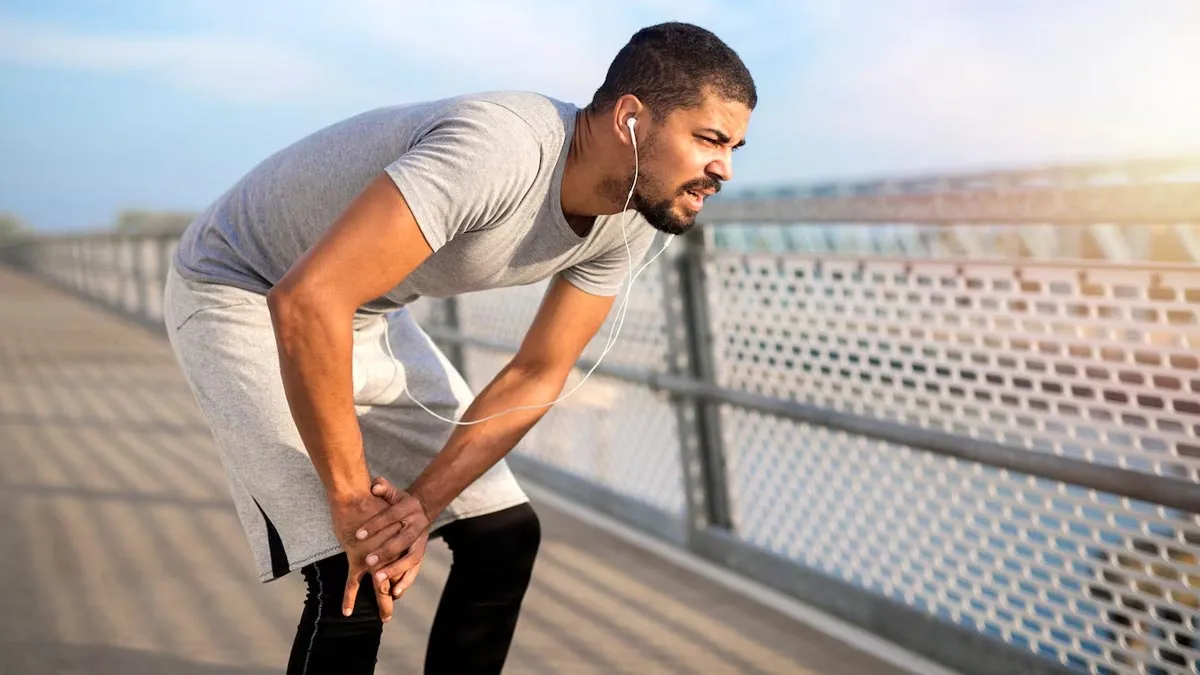
Does your joint also experience pain as soon as rain showers? Then it's no coincidence that it's the monsoon that is causing your joint aches and pains. During monsoon, changes in the barometric pressure, increasing levels of humidity and a dip in temperature are all capable of exacerbating joint-related problems, especially in monsoon season, particularly for people with preexisting conditions like arthritis, old injuries or even degeneration due to age.
Table of Content:-
Dr Abhijit Tayade, Orthopaedic and Robotic Knee & Hip Surgeon, Pristyn Care Diyos Hospital, New Delhi, explained that the secret to getting rid of joint pain in monsoon lies in the daily routine. Treating it through appropriate antioxidant foods and activities will ease your pain, give you freedom to move, even during monsoon.
Four Doctor-Approved Natural Remedies to Relieve Joint Pain in Monsoon:
1. Green Tea: An Anti-Inflammatory Natural Brew
Green tea is not only a soothing drink, but it is also very rich in polyphenols, which have a reputation for being anti-inflammatory and containing antioxidants. “They assist in minimising stiffness and inflammation of joints, particularly in chronic inflammatory ailments such as osteoarthritis and rheumatoid arthritis,” advised Dr Tayade.
Why it works: The cellular level involves targeting the inflammation process with the green tea polyphenols.
How to Consume: Consumption of 2 to 3 cups of green tea daily can contribute considerably towards the reduction of inflammation markers in the body.
ALSO READ: Can Cycling Support Longevity, Mobility, & Mental Health? Expert Weighs In
2. Olive Oil-The Liquid Gold to Healthy Joints
Extra virgin olive oil treated in a cold press is highly enriched with a natural compound known as oleocanthal, which has the same effect as the common pain-reliever drugs, such as ibuprofen. This is why it is a great supplement to add to your diet to fight inflammatory modalities, particularly among individuals with arthritis or those who experience chronic joint stiffness.
“The routine use of olive oil can decelerate the rate of cartilage degradation, alleviate the swelling of the joints and enhance the general mobility,” said Dr Tayade.
Why it works: Oleocanthal in olive oil acts as ibuprofen and gives an anti-inflammatory effect.
How to Consume: Take 1 tsp/day on an empty stomach, or use as salad dressing, or pour on cooked vegetables.
ALSO READ: Understanding Knee Pain: Expert Shares 7 Common Causes and Treatment Options
3. Garlic: Little Clove, Powerful Benefits
One of the most commonly available, but least valued, natural anti-inflammatories is garlic. Garlic is good in sulfur-containing compounds, and it can hinder the inflammatory processes in the body. It also holds diallyl disulfide, which inhibits the enzymes which degrade cartilage.
“Introducing garlic to the everyday diet can help to lessen the joint pain and the swelling, especially in the knees and hips. It also enhances immunity, which could be of great assistance to the so-called flu season of the monsoons,” said Dr Tayade.
Why it works: Sulfur compounds fight inflammation and aid protection of cartilage
How to Consume: Take one to two cloves of raw garlic in the morning or add them to cooked dishes regularly.
4. Milk and Turmeric: Golden Milk
Turmeric is packed with the active ingredient, curcumin, and several studies have revealed that the progression of arthritis can be delayed by curcumin and that the level of pain in the joints reduces and strengthens stiffness.
Warm milk is one of the most effective ways to have turmeric, ideally at bedtime. This assists not only in inflammation but also enhances sleeping that is very crucial in the recovery process and general health.
Why it works: Curcumin takes care of inflammatory cytokines and degenerating enzymes in joints and helps ease the pain caused by inflammation.
How to use: Add a pinch of turmeric powder to a glass of warm milk every day (add black pepper to enhance its absorption).
ALSO READ: When Gut Issues Stem From The Spine: Expert Explains Viscerosomatic Reflexes
The Science Behind Rain-Induced Joint Pain
So, why exactly does rain make your joints hurt more?
- Barometric pressure drops before a storm, which can cause muscles and tendons to expand slightly, irritating joints.
- Humidity increases stiffness and slows blood circulation.
- Cold weather can reduce joint fluidity, making movements feel rigid or painful.
People who have already had problems with the joints, say arthritis, old injuries, etc, may tend to experience such effects more during monsoons.
What Else Can You Do?![1 - 2025-07-30T160234.509]()
In addition to changing the diet, some simple changes to the lifestyle can make a big much:
- Wrap up joints: Wrap up in heating pads or knee/j comes day sleeves.
- Be active inside: Low-impact activities to keep the joints well lubricated include gentle stretching, yoga, or low-impact exercises.
- Watch weight: Manage your weight to avoid unnecessary load on the joints, especially knees.
- Drink plenty of fluids: Water aids in getting rid of toxins and aids in joint lubrication.
ALSO READ: Winter Health Alert: Orthopaedic Issues To Watch Out For And Preventive Tips
Final Thoughts
The monsoon is known as the weather of romance, but for some with knee and hip issues, this time can be problematic. However, adding natural remedies such as green tea, garlic, turmeric, and olive oil will reduce pain in the long term and may impede further destruction.
Also watch this video
How we keep this article up to date:
We work with experts and keep a close eye on the latest in health and wellness. Whenever there is a new research or helpful information, we update our articles with accurate and useful advice.
Current Version

